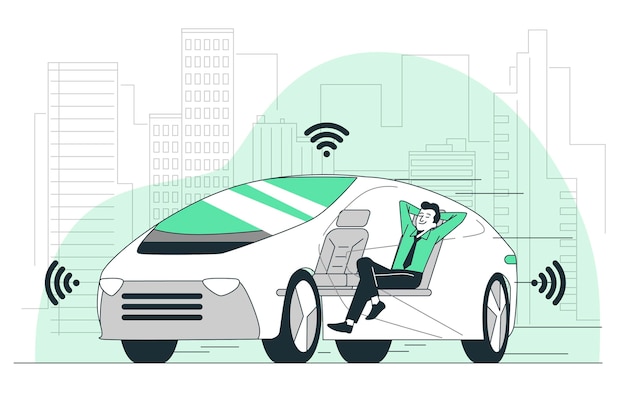Paving the Way for Autonomous Vehicles: UK’s Connected Car Trials

A project aimed at developing an advanced environment for connected and self-driving cars in the UK has entered its second testing phase. In this phase, connected cars will be trialed on public roads to help prepare the country’s road networks for autonomous vehicles.
Jaguar Land Rover will be testing various connected features like emergency electronic brake light warnings, emergency vehicle alerts, and in-vehicle signs for road works and traffic updates as part of the UK Cite (Connected Intelligent Transport Environment) consortium’s second phase.
This initiative aims to create the nation’s first fully connected infrastructure by using a mix of wireless technologies, enabling safe and managed real-world testing. The project is funded by a £100 million government fund dedicated to connected and autonomous vehicles and managed by Innovate UK. In total, the project is valued at £7.1 million, including investments from both the government and Highways England.
Transport for West Midlands (TfWM) and Coventry City Council have helped install crucial infrastructure on urban roads ahead of the installment of 35 roadside units by Siemens on the M40 and M42 motorways. These units facilitate real-time data exchange between vehicles and traffic control systems. Vodafone has supported this phase by providing 30 smartphones and network connectivity for vehicle-to-infrastructure communications.
Beyond just on-road testing, simulation is a key aspect of the project’s next phase. Horiba Mira is developing a simulation system to model connected vehicles, while Coventry University will use data from live vehicle trials to create a larger virtual environment using simulation modeling.
The Cite consortium is made up of industry leaders, academic institutions, and local and national government bodies. Led jointly by Visteon Engineering Services and Jaguar Land Rover, the consortium includes partners like Coventry City Council, Coventry University, Highways England, Horiba Mira, Huawei Technologies, Siemens, TfWM, Vodafone, and the University of Warwick’s WMG.
Claire Lewis, Senior Business Development Manager at Visteon Engineering Services, oversees the project’s technical architecture, including embedded software and a smartphone app. “This next phase of testing is crucial for assessing the capabilities and metrics of the connected network we’re building,” she said. “The progress we’re achieving through the UK Cite project is developing critical technologies for a safer and more efficient road network.”
The plan is to outfit over 65 kilometers of urban roads, dual-carriageways, and motorways with several connected vehicle technologies, including a new LTE-V technology under evaluation. The project will explore how these technologies can enhance journeys, reduce traffic congestion, and offer improved safety and entertainment services via better connectivity over a 30-month period.
“To fully benefit from self-driving cars, we need to understand the infrastructure that supports them,” said Colin Lee, Jaguar Land Rover’s V2X Manager. “Connectivity not only brings us closer to this goal but also sets up a platform for a wide array of connected safety features for our customers. We’re working with top global experts from industry and academia and are excited to advance to the next testing phase.”